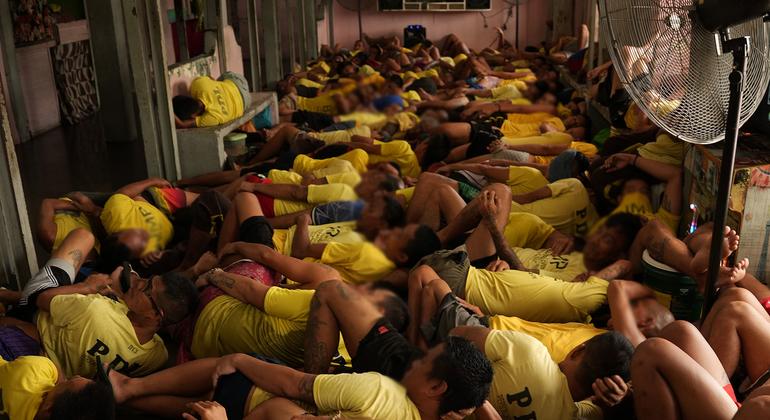The Nelson Mandela Rules, named after the iconic former South African president who endured 27 years of unjust incarceration, are making waves in the realm of prison and penal reform in the Philippines. As the world gears up to celebrate Nelson Mandela International Day on 18 July, it is crucial to shed light on the significance of these rules and the efforts being made to implement them effectively.
At the core of the Nelson Mandela Rules is the principle of humane treatment for all prisoners, emphasizing respect, dignity, and the elimination of discrimination. This principle is especially poignant in a country like the Philippines, where prison congestion is a pressing issue. The Philippines is ranked alongside countries like the Democratic Republic of the Congo, Haiti, and Uganda in terms of overcrowded and cramped prison facilities, highlighting the urgent need for reform.
One stark example of this issue is Manila City Jail, where over 3,200 men are crammed into a facility designed for only 1200 individuals. The overcrowded conditions have been described as inhumane, with inmates reportedly sleeping in close quarters like sardines. The Supreme Court’s Associate Justice Maria Filomena Singh has raised concerns about the dire situation at Manila City Jail, noting that the facility, built in 1867, fails to meet the basic requirements outlined in the Nelson Mandela Rules. High temperatures, lack of ventilation, and inadequate living space all contribute to a challenging environment for inmates, underscoring the need for immediate action.
Healthcare is another crucial aspect addressed by the Nelson Mandela Rules, emphasizing that prisoners should have access to the same standards of healthcare available in the community. While Manila City Jail exemplifies the shortcomings in this area, there have been positive developments in other prisons across the country. Iligan City Jail, for instance, has made strides in providing healthcare services to inmates, ensuring that they receive necessary medical attention free of charge and without discrimination based on their legal status.
Ensuring safety and dignity for both prisoners and prison staff is a fundamental tenet of the Nelson Mandela Rules. This includes maintaining secure conditions within prisons, implementing disciplinary measures that uphold human dignity, and preventing torture or other forms of inhumane treatment. The newly constructed Marawi City Jail in Mindanao exemplifies this principle, as it was designed with the Nelson Mandela Rules in mind and inaugurated in May 2024. The facility replaces the city’s old jail, which was destroyed during a five-month Islamist insurgency in 2017. The UN Office on Drugs and Crime (UNODC), the official custodian of the Rules, provided technical support to the Bureau of Jail Management and Penology in establishing the new facility, ensuring that it meets international standards for the treatment of prisoners.
As the Philippines continues its journey towards prison and penal reform, the Nelson Mandela Rules serve as a beacon of hope and guidance. By upholding the principles of respect, dignity, healthcare, safety, and security, the country can work towards creating a more just and humane prison system for all individuals. It is imperative that these efforts are sustained and expanded to ensure that the spirit of Nelson Mandela’s legacy lives on in the Philippines and beyond.









